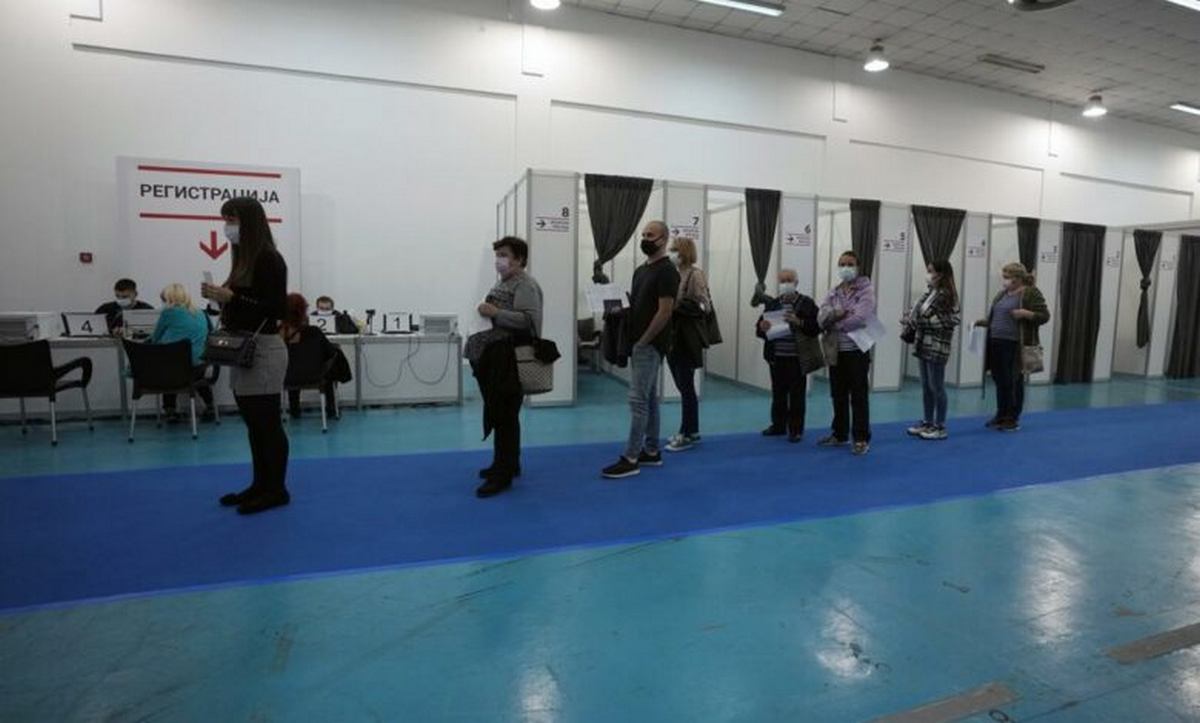When Russian regulators approved their own coronavirus vaccine, it was a moment of national pride, and the Pavlov family was among those in a hurry to inject. But international health authorities have not yet given their blessing to the Sputnik V vaccination.
So when a family from Rostov-on-Don wanted to visit the West, they started looking for a vaccine that would allow them to travel freely – the search led them to Serbia, where hundreds of Russian citizens have flocked in recent weeks to get Western-approved COVID vaccinations. 19.
Serbia, which is not a member of the European Union, is a convenient choice for Russians seeking vaccines because they can enter the union Balkan country without visas and because it offers a wide range of Western-made vaccines. In the capital, Belgrade, they can be seen in hotels, restaurants, bars and clinics where vaccinations are given.
“We made the Pfizer vaccine because we want to travel around the world,” said Nadiya Pavlova, 54, who received the vaccine last weekend at a huge vaccination center in Belgrade.
Her husband, Vitaly Pavlov, 55, said he wanted “the whole world to be open to us, not just a few countries.”
Vaccination tour packages for Russians wishing to get vaccinated, approved by the World Health Organization, appeared on the market in mid-September, according to the Association of Tour Operators of Russia.
Maya Lomidze, the association’s executive director, says prices range from $ 300 to $ 700, depending on what is included.
The Sputnik V vaccine, which Russian President Vladimir Putin called the world’s first registered COVID-19 vaccine, appeared in August 2020 and has been approved in about 70 countries, including Serbia. However, the WHO said that the global approval is still under consideration after a few months ago at a manufacturing plant problems.
On Friday, a senior World Health official said legal issues delaying consideration of “Satellite V” were “about to be settled,” and the move could resume the process of obtaining an emergency use permit.
Other obstacles remain for Russia’s application, including the lack of complete scientific information and site inspections, said Dr. Mariangela Simao, WHO’s assistant director general.
In addition to the WHO, Sputnik V is also awaiting approval from the European Medicines Agency before all travel restrictions for people vaccinated with the Russian formula are lifted.
The long wait has disappointed many Russians, so when the WHO announced another delay in September, they began looking elsewhere for solutions.
People do not want to wait, they need to get to Europe for various personal reasons, “explains Anna Filatovskaya, a representative of the travel agency” Russian Express “in Moscow.” Someone has relatives. Someone has a business, someone is studying, someone is working. Some just want to visit Europe because they miss it. ”
Serbia, an Orthodox and Slavic country, offers Pfizer, AstraZeneca and Sinopharm vaccines. At numerous requests, Russian travel agencies now also offer tours to Croatia, where tourists can receive the Johnson & Johnson vaccine as a single vaccination without having to return for a second dose.
“As for Serbia, demand is growing like an avalanche,” Filatovska said. “It seems that our company these days is just selling tours to Serbia.”
The Balkan country introduced vaccination for foreigners in August, when domestic vaccination slowed to about 50% of the adult population. Official figures from the Serbian government show that about 160,000 foreigners have been vaccinated in the country to date, but it is unclear how many of them are Russians.
In Russia, the level of vaccination in the country was low. By this week, almost 33% of Russia’s 146 million people had received at least one dose of the coronavirus vaccine, and 29% had been fully vaccinated. In addition to Satellite V and a single-dose version known as Satellite Light, Russia has also used two other domestically developed vaccines that have not been internationally approved.
Russian Health Minister Mikhail Murashko recently said that administrative issues were one of the main reasons for the delays in the WHO review process.
Judy Twiggy, a professor of political science specializing in global health at the Commonwealth University of Virginia, expects “Satellite V” to eventually be approved, but “perhaps not by the end of this year.”
“WHO has said it needs more data and it needs to go back and inspect some production lines where it saw problems in the early stages. These re-inspections are a multi-week process, and there are good reasons for that. It’s not just what they’re for. look careless. ”
Against the background of low levels of vaccination and the reluctance of the authorities to reintroduce restrictive measures, both in Russia and Serbia in recent weeks the number of cases of infection and hospitalization caused by COVID-19 has reached record levels.

